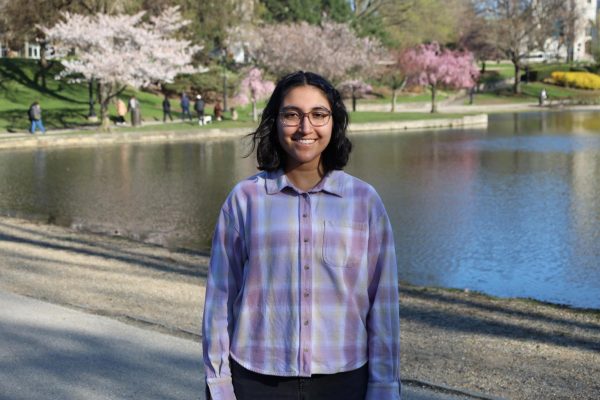Agarwal: The unbounded power of billionaires
How the world’s richest people need to change their ways
November 12, 2021
In 2020, 9.9% of people globally were undernourished. To put this in perspective, the world population in 2020 was 7.8 billion, meaning that roughly 772 million people lacked access to the minimum amount of nutrients needed for their health. That’s 772 million people who were unable to fulfill a basic human need.
Due to the pandemic last year, world hunger dramatically increased and climate change issues worsened. Amidst this mess, Tesla CEO Elon Musk saw his net worth increase by 125 billion dollars in 2020 alone, while Amazon founder Jeff Bezos saw his own increase by 75 billion. Just last month, Musk’s net worth surpassed 300 billion dollars, dethroning Bezos and crowning him the richest person on the planet. According to David Beasley, the director of the United Nations’ World Food Program, which aims to assist countries in staying food secure, 6.6 billion dollars from billionaires like Musk and Bezos could save 42 million people across 43 countries from the brink of starvation. Musk’s two percent could essentially solve the world’s most extreme form of malnourishment. Yet Musk and Bezos, who have given away less than one percent of their wealth over their lifetimes, choose to feud among themselves about space and wealth and continue their methods of tax avoidance rather than address the hunger crisis.
Musk is constantly on Twitter, honing his hobby as an internet provocateur. When Musk realized his new place above Bezos in the rankings, he quickly tweeted out an emoji of a silver medal, childishly boasting his feat in a continuation of their public feud. When Musk noticed Bezos’ arrival in the internet space satellite business, he made sure to tweet out a cat emoji, proclaiming Bezos a copycat, referencing his own original involvement in the area. And Bezos is no better, having filed a lawsuit through his aerospace company, Blue Origin, against the United States government over NASA’s single contract with Musk’s aerospace and communications company SpaceX.
However, when Beasley’s statement regarding world hunger went public, Musk, as usual, went to Twitter to say that he would promptly donate the 6.6 billion dollars, under the sole condition that the WFP would openly describe how they would spend the money. Despite his active Twitter presence, after Beasley replied with extensive plans and promised to follow up with more details in the coming days, there was radio silence from Musk’s end. Yet Musk’s lack of a response was unsurprising; after all, Musk has only given away approximately 0.005% of his wealth and paid 3.27% of his wealth in taxes. Likewise, Bezos, whose net worth is currently over 200 billion dollars, has only given away 0.75% of his wealth and paid 0.98% of his wealth in taxes.
In comparison, fellow billionaires Berkshire Hathaway CEO Warren Buffett and hedge fund tycoon George Soros have given away over 20% of their wealth to charities; in fact, Buffet plans to eventually give away more than 99% of his wealth. Even Bezos’ ex-wife, MacKenzie Scott, has donated more than Musk and Bezos, despite gaining her wealth only two years ago. However, such charitable billionaires are few and far between the hundreds more that act like Musk and Bezos. Furthermore, with respect to taxes, Americans, on average, paid a 13.3% income tax rate in 2018, even though the average American is not a millionaire; meanwhile, billionaires paid similar tax rates to Musk and Bezos.
When considering those facing undernourishment, the billionaires hanging onto every shred of their wealth seem detestable. Whether you admit it or not, billionaires like Musk and Bezos wield an unfathomable amount of power that could be used to help the world instead of fueling petty feuds. And like Beasley suggested, that power could help alleviate world hunger. According to the WFP, to prevent famine, of the 6.6 billion dollars, 4.2 billion dollars could be utilized for food distribution to the 42 million people; the remaining 2.4 billion dollars would be allocated towards cash transfers to those affected, financially assisting them in the purchase of food.
Giving away that sum should be feasible for those with hundreds of billions of dollars. Yet billionaires still hesitate; like Musk, they might outwardly doubt the credibility of the organization promising such change. Additionally, they might not truly comprehend how dire world hunger and other global problems are becoming. However, Beasley’s call to action to billionaires should diminish these doubts and ignorance; after all, he offered a direct and detailed plan for utilizing 6.6 billion dollars to alleviate human suffering. Organizations as credible, transparent and impactful as the WFP are worthy subjects of billionaires’ philanthropy.
Even so, the short-term nature of WFP’s plan might discourage billionaires from giving, since they could fear that they would be expected to continually share their wealth. However, there are many alternative ways to alleviate world hunger, such as financing farms or climate-change safeguards in affected countries; providing emergency aid is not their only option. The same idea goes for other global issues, such as infectious diseases and poverty. Preventive measures and emergency aid are both viable paths to invest in, and there are plenty of reputable organizations to help in doing so, like the Bill and Melinda Gates Foundation. Thus, instead of feuding and stockpiling their wealth, hopefully, Musk, Bezos and other billionaires can come together to fight world hunger and other pressing global issues before these problems get worse.


